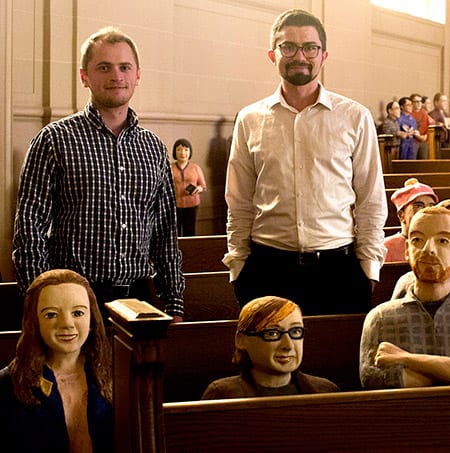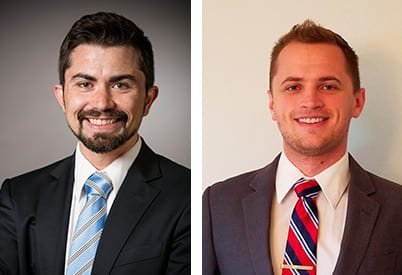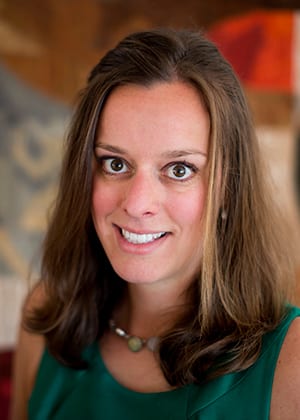By Leslie Gordon

Two Samuelson Law, Technology & Public Policy Clinic students recently filed an amicus brief to protect public access to archived TV news clips and political advertisements. The case, between FOX News Network and TVEyes, Inc. is before the Second Circuit Court of Appeals and involves copyright and fair use.
In 2013, FOX News Network sued for copyright violations TVEyes, a clip service that records television broadcast content and transforms it into a searchable database for subscribers. In earlier proceedings, the District Court held that TVEyes’ news copying, indexing and clipping service is protected by fair use, as is its feature that allows customers to archive video clips. But the court also held that allowing customers to download video clips, share links to clips via email, and search clips by time and date are copyright infringing. Both parties appealed the District Court decision.
Under the direction of Samuelson Clinic teaching fellow Brianna Schofield ’12, students Tomasz Barczyk ’16 and William Binkley ’17 filed the amicus brief on behalf of the Internet Archive, the American Library Association, the Association of College and Research Libraries, the Association of Research Libraries, and the Society of American Archivists.
The brief argues that effectively preserving ephemeral media and making television content available for public access constitutes fair use and promotes public discourse and political accountability.
In preparing the amicus brief, Barczyk and Binkley worked closely with San Francisco-based Internet Archive, a non-profit organization that, among other archiving efforts, harnesses closed captions of TV news broadcasts and political ads and provides free public access to its searchable data. The amicus brief highlights the public benefits that flow from such archiving of television content.

Specifically, the public can use the index of searchable text and video clips “to explore television news, discover important resources, understand context, evaluate assertions of fact, compare and contrast media, and share insights,” according to the brief.
Hands-on learning
“The students played a central role in all aspects of the project,” Schofield said. “In addition to researching and writing, they participated in extensive meetings with the client and strategized to identify the best way to present their clients’ interests to the court. The final brief is really a reflection of their work. It shows they understood the issues and worked to further the clients’ mission. This was not an artificial, closed learning process. This is doing what lawyers actually do. It advanced their skills at a rapid pace, while having a real-world impact.”
The clinic students “encountered various aspects of being a lawyer that are not covered in the typical law school setting,” said Barczyk, who graduates in May. “I can honestly say that I feel more confident about starting my legal career after this experience.”
For Binkley, the opportunity to do this kind of work with the clinic is one of the primary reasons he chose to attend Berkeley Law. Because of the copyright issues at stake, “this project appealed to me right away,” Binkley explained. “It was a fantastic opportunity to get hands-on experience doing real legal work while in law school. We also gained substantive legal knowledge as we conducted research and applied case law to support our arguments.”
In particular, the brief argues that repurposing TV broadcasts benefits the public in two important ways. First, it allows the public to view previously aired broadcasts and analyze discrete statements within them, which encourages public discourse and political engagement. Second, these archives also provide access to an aggregated database of TV content, which unlocks researchers’ ability to mine and analyze content as data. In that way, the archives contribute to the work of journalists, scholars, librarians, teachers, civic organizations and engaged citizens.

“Working on Internet Archive’s amicus brief provided a unique opportunity to demonstrate how the issue affects people in their every day lives,” Barczyk said. “For example, journalists and researchers use television archives to fact check statements made in political television ads or illuminate how politicians target the public by studying patterns in the ads. When voters are empowered with this information, they can make more informed decisions in choosing their leaders. Without television archives, these studies would not be possible.”
In addition to arguing that comprehensive archiving services are protected by fair use under copyright law, the brief explains the broader importance of fostering a robust community of archiving organizations. Because TV broadcasts are ephemeral by nature, content is lost without systematic preservation efforts.
“Culturally and historically important television content has already been lost,” Schofield explained. “Even broadcasters themselves are not always good stewards of this historical record.” A decision against fair use in this case would chill important services like these and could result in the loss of cultural resources, according to the brief.